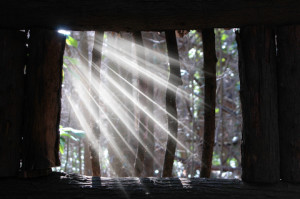
“But the truth is, the ten or twenty minutes I was somebody’s mother were black magic. There is no adventure I would trade them for; there is no place I would rather have seen.” Ariel Levy, “Thanksgiving in Mongolia”
“You can close your eyes to reality but not to memories.” Stanislaw Jerzy Lec
“I don’t want to forget her.”
“I can’t stop thinking about my baby.”
“Remembering and being sad makes me feel connected to him.”
Sometimes I get questions about what it’s like further down the road. People want to know what it will be like after years have passed and they become older and are people who did or didn’t have more babies and who have had more life happen to them. They wonder what it will be like after they have lived a long time without the baby they lost. Will the memories of their baby or pregnancy fade away? Will they remain all too vivid? What will they feel about it all?
For any given person, I have to say that I don’t know for sure. I can’t know.
There are things we know about what usually happens. People don’t stay in the worst part of their pain long term. Most people don’t get post-traumatic stress disorder after baby loss. For those who do there is treatment. Most people eventually return to their baseline of happiness. Again, help is available for those who need it.
And, as usual, life will continue to involve a lot of fluctuations between the zoom and macro lens view of our lives, including our losses.
When it comes to baby loss experiences, we tend to be ambivalent about our memories. Losing the memories would mean that nothing remains of the relationship and experience. The disappearance of a memory, as in the movie Eternal Sunshine of a Spotless Mind, would mean the disappearance of part of our lives and part of us. And the too vivid version? We’ve already lived that experience and were probably terrified of being stuck there.
A memory and its accompanying feelings can sometimes attack us with devastating intensity. This tends to happen more often in the early weeks and months, or in response to anniversaries or other specific triggers. However, these strong, surprisingly painful “grief bombs” (as labeled by one of my clients) may be an ongoing, occasional, part of our lives. These sudden attacks can feel upsetting but they can also feel like a time of connection to the baby and an important part of our history.
Memories may also be sought out– by bringing up the baby in conversation, poring through pictures or writing down what we recall about the baby or pregnancy. For some people, the need to honor and share about their baby is passionate, overt and embedded in their daily lives. (An excellent example of being “out” in this way can be found in Cherie Golant’s article “My Baby Died and I Can’t Shut Up About It” on Medium.com.)
For others, the honoring and remembering may be a more private, although no less sacred part of life. Support groups, whether online or in person, can often help such people in providing a safe place to express memories and feelings to those who are most likely to be able to understand and bear witness to the pain. Yearly memorials may serve a similar purpose. Others may find journaling or art to be the most effective routes to connect and think about their babies.
Connecting with and remembering a baby can also happen in very subtle ways. Every spring, I look for the tiny blue flowers that were in bloom when my baby died. When I see them I feel a small, strangely comforting sense of visiting the events of that time. I think about the experience of carrying and losing her and the mixture of sad and loving feelings I continue to hold.
Memories can pass through and briefly light up something in us. They can remind of us what happened and how our lives have been changed. They might be reminders about connection, impermanence, enduring love, staggering pain or the capricious nature of the world. They might be about living through hell and still living.
You will look back as you move forward. Sometimes you’ll smell something, feel something, know something because of where you’ve been. The part of you that loved and lost someone will still matter. Like the feeling of warm concrete against bare feet after the sun has gone down, your senses confirm what you know, that the glow was there.